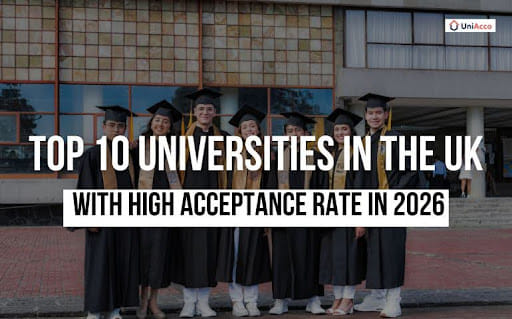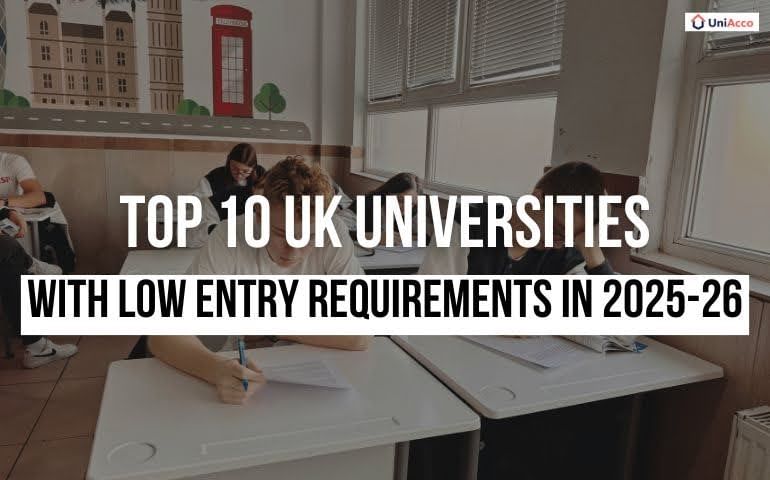Introduction
In today’s corporate environment, the Master of Business Administration (MBA) and Executive MBA (EMBA) programmes are critical. These postgraduate degrees provide individuals with the information and abilities they need to flourish in positions of leadership, handle complex issues, and create organisational success. There are several factors that create a huge difference between an MBA and an Executive MBA.
MBA and EMBA programmes are highly appreciated by companies seeking visionary executives capable of defining the future of the company due to their emphasis on strategic thinking, decision-making, and management knowledge. In this blog, we will explore the factors such as the key difference between an executive MBA and a normal MBA, the pros and cons of choosing an MBA and an Executive MBA, the top MBA and Executive MBA programmes, etc.
What is an MBA?
The Master of Business Administration (MBA) is a prominent postgraduate degree that equips students with a thorough grasp of business concepts and qualifies them for positions of leadership. MBA schools generally need a bachelor’s degree, professional experience, and standardised exam results (such as the GMAT or GRE). Finance, marketing, operations, and strategy are among the many business topics covered in the curriculum. Theoretical knowledge is frequently combined with case studies and practical applications in coursework.
Its programme focuses on building analytical, problem-solving, and strategic thinking skills and strengthening leadership and communication qualities to flourish in the fast-paced business environment.
What is an Executive MBA (EMBA)?
The Executive Master of Business Administration (EMBA) is a specialised graduate degree for experienced professionals looking to improve their leadership and management abilities. An EMBA abroad programme thoroughly reviews business ideas, with a particular emphasis on executive-level decision-making and strategic leadership. It is aimed at mid-to-senior-level executives and seasoned professionals who desire to advance their managerial skills. Applicants often require significant job experience, supervisory duties, and a bachelor’s degree.
Its programmes sometimes include a flexible format, such as weekend seminars or online modules, allowing professionals to balance their studies and job obligations. The programme emphasises practical knowledge, real-world case studies, and cooperation, allowing learners to use what they’ve learned in their professional jobs quickly.
Hope till now you have got a clear idea about MBA and Executive MBA. Let’s move forward to know the key difference between an MBA and an executive MBA.
Key Difference
The key difference between an MBA and an executive MBA lies in their target audience and programme structure. However, there are several other factors that lead to creating differences between MBA and executive MBA.
Options For Programme Duration And Scheduling
MBA: A full-time programme that lasts 1-2 years and has courses on weekdays.
EMBA: Aimed at working professionals, this programme is frequently taught on weekends or in modular forms to meet job responsibilities.
Requirements For Work Experience
MBA: Requires various job experience but welcomes individuals with little professional experience.
EMBA: Designed for seasoned individuals with substantial work experience, with a minimum of 5-10 years of managing or executive-level experience commonly required.
Class Description And Learning Environment
MBA: Students sometimes enrol immediately after finishing their undergraduate studies, resulting in a diverse class with a wide range of backgrounds and experiences.
EMBA: The cohort includes mostly experienced professionals from various industries, allowing for excellent peer-to-peer learning and networking possibilities.
Structure And Content Of The Curriculum
MBA: Provides a wide programme encompassing key business topics, allowing students to specialise.
EMBA: Advanced subjects related to executive-level decision-making, strategic leadership, and management in complex companies are covered.
Career Prospects And Outcomes

MBA: Offers prospects for career change, entrepreneurship, or rapid advancement into managerial positions in a range of sectors.
EMBA: Often improves career growth within the same sector or company, preparing workers for top leadership roles.
What Are The Pros and Cons Of An MBA?
The following are the advantages and disadvantages of Pursuing an MBA:
| Pros | Cons |
| Enhanced Career Prospects | High Cost of Education |
| Expanded Network | Time Commitment |
| Specialized Knowledge | Work Experience Requirement |
| Leadership Development | Intense Competition |
| Entrepreneurship Skills | Limited Practical Experience |
| Higher Salary Potential | Potential for Career Switching |
What Are The Pros and Cons Of An Executive MBA?
The following are the advantages and disadvantages of Pursuing an EMBA:
| Pros | Cons |
| Career Advancement | Higher Financial Cost |
| Networking Opportunities | Time Management Challenges |
| Enhanced Leadership Skills | Balancing Work and Study Responsibilities |
| Immediate Application | Demanding Workload |
| Specialized Executive Education | Limited Flexibility |
| Peer Learning | Need for Employer Support |
Who Should You Choose An MBA?
- Individuals seeking a complete business education and chances for success in their careers.
- Recent grads seeking a competitive advantage and to enhance their professional advancement.
- Professionals want to change occupations or advance in their careers.
- Entrepreneurs who want to improve their business acumen and strategic thinking skills.
Career Objectives
- Positions of leadership in a variety of businesses, including finance, consulting, marketing, and operations.
- Business development, corporate strategy, and general management are examples of strategic jobs.
- Entrepreneurship and the establishment of a business or endeavour.
- Advancement in current employment through the acquisition of specific skills and information.
Roles and Industries
- Considering Traditional MBA Consulting businesses that prioritise problem-solving, analytical thinking, and business strategy experience.
- Financial firms are looking for individuals with good financial and management abilities.
- Corporations are on the lookout for future leaders and executives.
- Start-ups and entrepreneurial initiatives that profit from the business expertise and networking possibilities afforded by an MBA degree.
Who Should Choose an Executive MBA?
- Professionals with extensive managerial or leadership experience.
- Individuals looking to progress their careers and improve their executive-level talents.
- Senior leaders who are interested in broadening their company perspective and strategic thinking.
- Professionals aspiring to top-level leadership positions in their company.
Career Objectives
- Promotion to the C-suite or other top-level executive jobs.
- Driving organisational growth through leading strategic initiatives.
- Managing complicated business issues and making sound business judgments.
- Improving leadership, negotiating, and change management abilities.
Industries and Roles
- Corporations and multinational corporations that place a premium on executive-level competence and leadership.
- Consulting businesses are looking for people with sophisticated strategic thinking and problem-solving skills.
- Entrepreneurial projects that benefit from business knowledge and leadership abilities
Top Universities To Pursue MBA And Executive MBA
| Universities for MBA | Universities for EMBA |
| Harvard Business School (United States) | Kellogg Executive MBA, Northwestern University (United States) |
| Wharton School, University of Pennsylvania (United States) | Wharton Executive MBA, University of Pennsylvania (United States) |
| Stanford Graduate School of Business (United States) | Booth Executive MBA, University of Chicago (United States) |
| INSEAD (France/Singapore) | Columbia Executive MBA, Columbia Business School (United States) |
| London Business School (United Kingdom) | MIT Executive MBA, MIT Sloan School of Management (United States) |
| MIT Sloan School of Management (United States) | Haas Executive MBA, University of California, Berkeley (United States) |
| Haas School of Business, University of California, Berkeley (United States) | LBS Executive MBA, London Business School (United Kingdom) |
| Columbia Business School (United States) | HEC Paris Executive MBA (France) |
| Booth School of Business, University of Chicago (United States) | IMD Executive MBA (Switzerland) |
| Kellogg School of Management, Northwestern University (United States) | INSEAD Executive MBA (France/Singapore) |
Conclusion
The difference between an executive MBA and a regular MBA can count on various factors such as their target audience, programme structure, and professional objectives. Both programmes provide distinct benefits, such as extended networks, specialised knowledge, and prospects for job progression. The decision between them is influenced by factors such as job experience, professional aspirations, and lifestyle concerns. Finally, MBA and EMBA pave the route for personal development, professional achievement, and the capacity to leave a lasting impression in the fast-paced business world. Hope this blog helps you to identify the key difference Between an MBA and an Executive MBA!
FAQs
Q1. What is better, Executive MBA or MBA?
Ans: The decision between an Executive MBA and a regular MBA is based on personal objectives and experience, with EMBAs aimed at experienced workers looking for executive-level abilities.
Q2. Is Executive MBA the same as MBA?
Ans: An Executive MBA and an MBA degree are not the same. An Executive MBA is a specialist MBA programme designed for senior-level executives.
Q3. Is 1 year Executive MBA worth it?
Ans: Individual circumstances determine the value of a one-year Executive MBA and should be assessed based on professional objectives and networking possibilities.
Q4. What is the Executive MBA salary?
Ans: Executive MBA wages vary depending on the industry, employment function, and experience. However, the average salary ranges between 10 LPA- 30 LPA.
Q5. Can I do both MBA and Executive MBA?
Ans: It is feasible to pursue both an MBA and an Executive MBA, but the decision should take into account time commitments and individual benefits.
Thank you for reading the article on the “difference Between an MBA and an Executive MBA”. Here are some other blogs of interest:















0 Comments